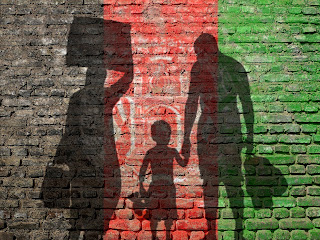Crisis and Cure: Writing Both Political and Personal
I think of the U.S. departure from Afghanistan as similar to racism in America—the problems are structural and systemic, far…
This blog was originally meant as an attempt to make sense of the election of 2016 and the disasters that befell the nation as a result. However, recently, it has expanded to include non-political and personal writing, and even some fiction and poetry. Still, be warned, there will be a lot of politics here, and most of it will be liberal or left of center.
I’m embarrassed. And angry. With the Biden administration. What were they thinking to remove the troops from Afghanistan and THEN to try to figure out how to help US citizens, permanent residents, and Afghan friends and helpers exit the country? Any housewife knows to straighten up and send the kids outside before she begins cleaning the house! Was it the administration’s advisors or a stubborn old president who decided to close down shop and then figure out what to do about people who would be in harm’s way?
This is personal for me. Forty-seven years ago this summer I was living in Kabul, Afghanistan, and working as Training Director for the Peace Corps. I know that may seem a long time ago to you and it is, but when I saw a video of people on the streets of Kabul this past week, it didn’t look much different. Except there were more tall buildings. Most of the men were dressed in long shirts, baggy pants, and turbans then and now. Most women were completely covered up in chadors. I think I saw a picture of a street near where I lived in Shari Nau. It hadn’t changed all that much.
The staff I had was all Afghan, save one young male admin assistant. They did their jobs well, were pleasant to work with, and seemed to respect the position I held more than the fact that I was a female. I had fewer problems with them than I sometimes had with American men back in the days of my being the “first” or “only” woman in their professional midst. My privately hired Farsi teacher came every morning to help me learn the language. Most of my employees were men, including Aref who took care of the house and did the shopping and cooking for me. More than a dozen men and two females taught Farsi or Pashtu to volunteers in training. Several men cooked for the volunteers or were assigned other supportive jobs. Two of the men were single, some were married to one wife, others had more than one family to support. None of their wives worked outside of the home. They were all helpful and friendly to this American woman. They were tough, sturdy men and women with ancestors who, over the centuries, had lived through difficult times when Buddhists, Genghis Khan, and others took over their country. Their ancient country was fascinating to explore.
These Afghans that I knew can’t have been too different from the interpreters and helpers I have been seeing on television. How could my country be so cruel as to not “have their back” as promised? They risked their lives for this country and its people! Shame, shame on the Biden administration for being so thoughtless, self-centered, and deceitful!
•
About the author: Elaine Parmenter notes that she is a mother, a Grandmother, and a Great-grandmother who retired from work as a psychologist and an international educator. She also worked on and off for the US Peace Corps in Puerto Rico, Ecuador, Afghanistan, Nepal, the Philippines, Morocco, Tunisia, and Barbados. Traveled throughout Asia and South America representing Drake University in Iowa and Oklahoma State University. She has also written articles for professional journals regarding issues and experiences she encountered.

When high level officials in our government are quoted as saying that they didn’t know much about a poor country in a remote location nor whom to ask about its people, etc. before our government took a particular action with little information on which to base that decision, the thought that there must be a few Peace Corps Volunteers who could respond always comes to mind. I share your frustration, etc., etc., etc.!
As a RPCV, I would like to know when you worked in Ecuador and if you knew Elaine Burgess?
Thank you very much.
Beverly Hammons, RPCV 1970-73 Ecuador
Pulitzer prize winner Viet Thanh Nguyen makes a helpful comparison between our departure from Vietnam as another example of a military solution being inadequate in much more complex circumstances than the military has been unwilling or able to understand. I provide some more analysis in the latest Million Mile Walker Dispatch–because if we don’t eventually learn our lesson–we’ll try it again–and again…http://millionmilewalker.com/2021/09/million-mile-walker-dispatch-the-afghanistan-debacle-august-edition/
Mark Walker 1971-73
Guatemala
I think of the U.S. departure from Afghanistan as similar to racism in America—the problems are structural and systemic, far above the pay grade of generals or even presidents.
America has been an ambitious imperialist power since the end of the 19th century. It has been cogently argued that the Peace Corps was one of the kinder, gentler forms of imperialism devised by us. PCVs who encountered anti-American views in host countries learned many lessons—one of which was that the world sees us through different eyes than we see ourselves.
American withdrawal from Afghanistan was tragic but inevitable. No one, least of all President Biden, feels good about yielding to an event that even a great power could not control. Helping Afghans is a worthy goal, but ending imperialist attitudes and actions is the greater challenge. Especially in helping those people who live in places where we served and loved.